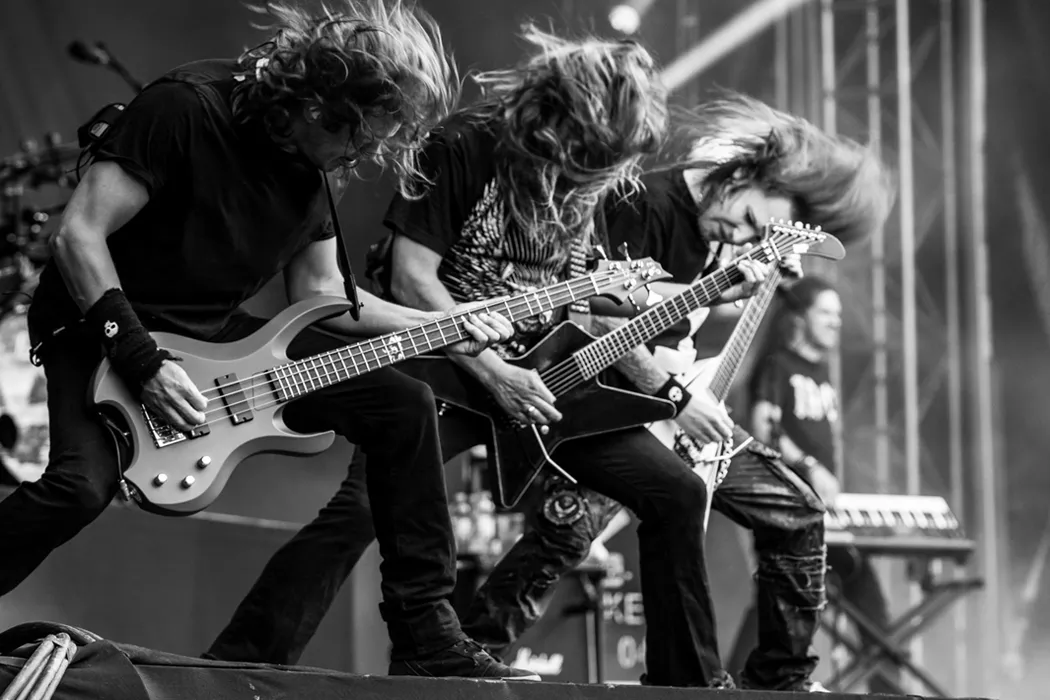The 1990s marked a pivotal era for the death metal genre, characterized by an explosion of creativity, innovation, and boundary-pushing music. As the decade unfolded, numerous bands emerged, each contributing to the evolution and diversification of death metal. From the blistering riffs to guttural vocals and complex song structures, the 90s witnessed the rise of many legendary acts that continue to influence the metal landscape to this day. In this article, we delve into the realm of 90s death metal to explore some of the most popular and influential bands of the era.
The Rise of 90s Death Metal
The roots of death metal can be traced back to the mid-1980s, with bands like Death, Possessed, and Morbid Angel laying the groundwork for what was to come. However, it was in the 1990s that the genre truly came into its own. One of the defining characteristics of 90s death metal was its diversity. While some bands adhered to traditional death metal tropes, others incorporated elements of progressive rock, jazz, or even classical music into their sound.
1. Death
No exploration of 90s death metal would be complete without mentioning Death, a band widely regarded as one of the pioneers of the genre. Formed in 1983 by guitarist and vocalist Chuck Schuldiner, Death underwent several lineup changes throughout its existence but consistently delivered groundbreaking music that pushed the boundaries of death metal. Albums like “Human” (1991) and “Symbolic” (1995) are considered masterpieces of the genre, showcasing Schuldiner’s songwriting prowess and technical proficiency. With their intricate melodies, complex arrangements, and thought-provoking lyrics, Death left an indelible mark on the 90s death metal scene and inspired countless bands in their wake.
2. Morbid Angel
Hailing from Tampa, Florida, Morbid Angel rose to prominence in the late 80s and solidified their status as one of the most influential death metal bands of the 90s. Led by guitarist Trey Azagthoth, Morbid Angel’s early albums, including “Altars of Madness” (1989) and “Blessed Are the Sick” (1991), are revered as classics of the genre. With their ferocious blend of blistering speed, intricate riffing, and occult themes, Morbid Angel helped define the sound of death metal in the early 90s and inspired a generation of musicians with their uncompromising approach to extreme music.
3. Cannibal Corpse
Formed in Buffalo, New York, in 1988, Cannibal Corpse quickly gained notoriety for their graphic lyrics and brutal sound. With albums like “Tomb of the Mutilated” (1992) and “The Bleeding” (1994), Cannibal Corpse became synonymous with the term “death metal,” earning a dedicated following among fans of extreme music. Known for their technical proficiency and relentless aggression, Cannibal Corpse’s music exemplifies the brutality and intensity of 90s death metal, influencing countless bands in the process.
4. Suffocation
Hailing from New York, Suffocation emerged in the early 90s as one of the pioneers of the brutal death metal subgenre. With their debut album, “Effigy of the Forgotten” (1991), Suffocation set a new standard for heaviness and aggression in death metal, incorporating elements of hardcore punk and grindcore into their sonic assault. Songs like “Liege of Inveracity” and “Infecting the Crypts” showcase Suffocation’s trademark blend of technical prowess and crushing brutality, earning them a place as one of the most influential bands of the 90s death metal scene.
5. Obituary
Formed in 1984 in Tampa, Florida, Obituary emerged as one of the pioneering bands of the death metal genre. With their raw, primal sound and guttural vocals, Obituary’s early albums, including “Slowly We Rot” (1989) and “Cause of Death” (1990), helped define the sound of death metal in the late 80s and early 90s. Known for their relentless groove and bone-crushing riffs, Obituary’s music remains a staple of the death metal canon, influencing countless bands with their distinctive style and uncompromising approach to extreme music.
6. Entombed
Hailing from Sweden, Entombed played a crucial role in shaping the sound of death metal in the early 90s with their groundbreaking album “Left Hand Path” (1990). Blending elements of death metal and punk rock, Entombed’s music was characterized by its raw aggression and infectious energy. Songs like “Drowned” and “But Life Goes On” exemplify Entombed’s unique blend of ferocity and melody, earning them a place as one of the most influential bands of the 90s death metal scene.
7. Deicide
Formed in 1987 in Tampa, Florida, Deicide quickly gained notoriety for their blasphemous lyrics and relentless aggression. With albums like “Deicide” (1990) and “Legion” (1992), Deicide established themselves as one of the leading bands of the death metal genre, earning a dedicated following among fans of extreme music. Known for their lightning-fast riffing and Satanic imagery, Deicide’s music remains a cornerstone of the 90s death metal scene, inspiring legions of fans and musicians with their uncompromising approach to extreme music.
8. Bolt Thrower
Hailing from Coventry, England, Bolt Thrower emerged in the late 80s as one of the pioneering bands of the death metal genre. With their crushing riffs, thunderous drums, and apocalyptic lyrics, Bolt Thrower’s music evokes a sense of impending doom and destruction. Albums like “Realm of Chaos” (1989) and “War Master” (1991) are revered as classics of the genre, showcasing Bolt Thrower’s mastery of atmosphere and aggression. Despite disbanding in 2016 following the death of drummer Martin Kearns, Bolt Thrower’s legacy looms large over the world of death metal, inspiring generations of fans and musicians with their uncompromising vision and unwavering dedication to the craft.
Conclusion
The 90s were a golden age for death metal, with numerous bands pushing the boundaries of the genre and leaving an indelible mark on the metal landscape. From the technical wizardry of Death to the brutal aggression of Cannibal Corpse and Suffocation, the decade saw the emergence of countless iconic bands that continue to inspire and influence musicians to this day. While the genre has evolved and diversified since the 90s, the legacy of these pioneering bands lives on, serving as a testament to the enduring power and influence of death metal.

